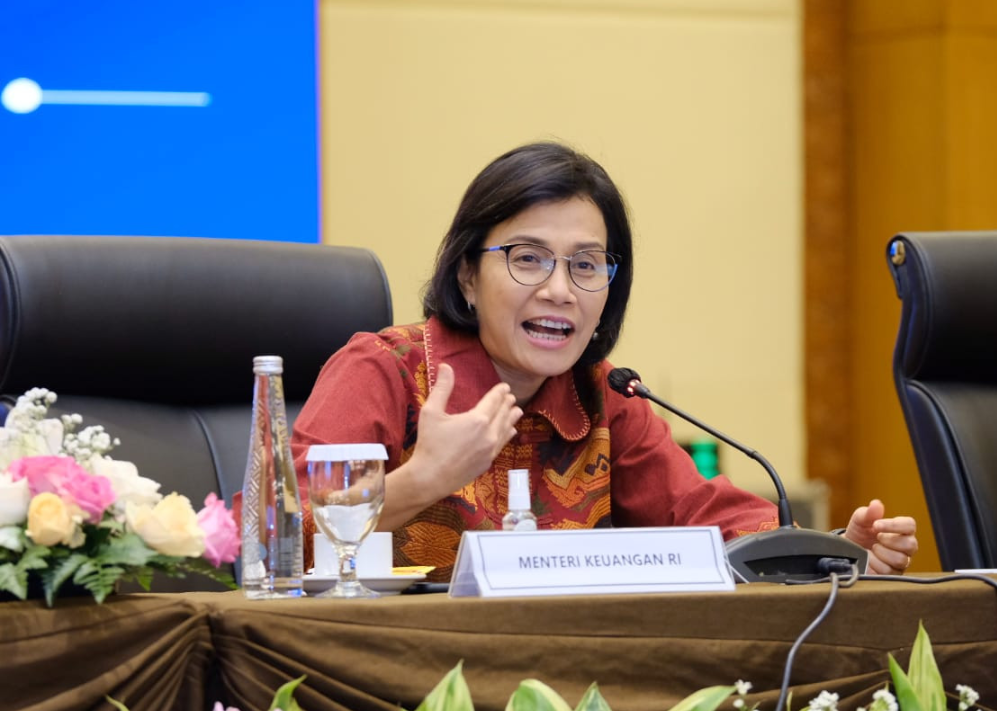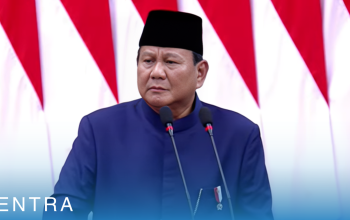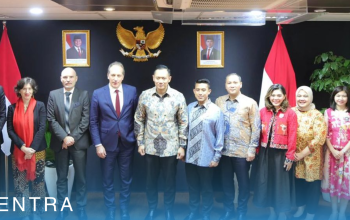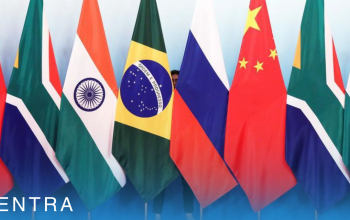Sentra– DPR Forces Sri Mulyani:The Indonesian political landscape is abuzz with tension as the House of Representatives (DPR) demands Finance Minister Sri Mulyani to address and potentially reverse the decision to block certain accounts by the Financial Transaction Reports and Analysis Center (PPATK). This move has raised several questions about the motivations behind the DPR’s insistence and the broader implications for Indonesia’s financial oversight and transparency.
Background
The Financial Transaction Reports and Analysis Center (PPATK) stands as a cornerstone of Indonesia’s financial integrity framework, tasked with monitoring and analyzing financial transactions to combat money laundering and terrorist financing. Its establishment was a response to the growing need for robust mechanisms to safeguard the nation’s financial system from illicit activities.
Over the years, PPATK has evolved into a critical institution, employing sophisticated tools and methodologies to detect and prevent financial crimes. Its role extends beyond mere surveillance; it actively collaborates with domestic and international agencies to track illicit financial flows and disrupt criminal networks.
However, the recent controversy surrounding PPATK revolves around its decision to block certain accounts. While the center’s actions are driven by a commitment to uphold the law and ensure financial transparency, concerns have been raised regarding the process and criteria used for blocking accounts.
Some members of the House of Representatives (DPR) have voiced apprehensions about the transparency and accountability of PPATK’s operations. They argue that the lack of clear guidelines and oversight mechanisms could potentially lead to arbitrary decisions and abuses of power. Moreover, there are allegations that some of the account blockings may have been politically motivated, raising questions about the center’s impartiality and independence.
This backdrop of uncertainty and skepticism has set the stage for a contentious standoff between the DPR and Finance Minister Sri Mulyani. The DPR’s demand for Sri Mulyani to intervene and potentially reverse the account blockings underscores the deep-seated tensions surrounding this issue. As stakeholders navigate this complex terrain, the fundamental principles of justice, transparency, and institutional integrity hang in the balance.
The DPR’s Stance
The House of Representatives (DPR) has emerged as a vocal critic of the Financial Transaction Reports and Analysis Center (PPATK), particularly regarding its recent decisions to block certain accounts. The DPR’s stance reflects a multifaceted set of concerns and considerations, driven by its mandate to ensure accountability, transparency, and the rule of law.
- Transparency and Accountability: Central to the DPR’s stance is the insistence on transparency and accountability within PPATK’s operations. Members of the DPR argue that the process by which accounts are blocked lacks clear guidelines and oversight mechanisms, leaving room for potential abuse or arbitrary decisions. They stress the importance of establishing robust procedures that ensure fairness and impartiality in all actions taken by PPATK.
- Economic Impact: The DPR is also deeply concerned about the economic implications of PPATK’s actions. Account blockings can disrupt financial transactions, impacting businesses, individuals, and the broader economy. There is a fear that indiscriminate or unjustified account blockings could result in financial losses and undermine investor confidence. As such, the DPR seeks assurances that PPATK’s decisions are based on solid evidence and adhere to established legal and regulatory frameworks.
- Political Motivations: Allegations of political motivations behind certain account blockings have further exacerbated tensions between the DPR and PPATK. Some members of the DPR argue that the center may be targeting individuals or entities for political reasons, rather than genuine concerns about financial impropriety. This raises serious questions about the integrity and independence of PPATK and underscores the need for a thorough examination of its practices and motivations.
In summary, the DPR’s stance on the issue of PPATK’s account blockings reflects a deep-seated commitment to upholding democratic principles, ensuring accountability, and safeguarding the interests of the Indonesian people. As the standoff between the DPR and PPATK continues, finding common ground and addressing underlying concerns will be crucial to restoring trust and confidence in Indonesia’s financial oversight mechanisms.
Sri Mulyani’s Position
Finance Minister Sri Mulyani’s position on the matter of the Financial Transaction Reports and Analysis Center (PPATK) account blockings is one of careful consideration, balancing the need for financial integrity with the demands for transparency and fairness.
- Upholding Financial Integrity: Sri Mulyani has long been a staunch advocate for financial integrity and transparency in Indonesia. As Finance Minister, she understands the importance of robust measures to combat money laundering, terrorist financing, and other financial crimes. Her foremost concern is ensuring that PPATK has the tools and resources necessary to fulfill its mandate effectively.
- Respecting Due Process: While recognizing the importance of PPATK’s actions in combating financial crimes, Sri Mulyani also emphasizes the need for due process and adherence to the rule of law. She understands the concerns raised by the House of Representatives (DPR) regarding transparency and accountability in PPATK’s operations. Sri Mulyani is committed to ensuring that any account blockings carried out by PPATK are based on solid evidence and comply with established legal and regulatory frameworks.
- Navigating Political Pressures: Sri Mulyani finds herself in a delicate position, caught between the demands of the DPR and the imperative to uphold the integrity of Indonesia’s financial institutions. While she acknowledges the DPR’s concerns, she also recognizes the importance of maintaining PPATK’s independence from political interference. Her approach is guided by a commitment to finding a solution that respects the principles of justice, fairness, and institutional autonomy.
- Seeking Balance: Ultimately, Sri Mulyani’s position is one of seeking balance. She understands the need to address the DPR’s concerns while ensuring that PPATK retains the autonomy and authority necessary to fulfill its crucial role in safeguarding Indonesia’s financial system. Sri Mulyani’s decisions in this regard will be guided by a commitment to upholding the highest standards of integrity and accountability in Indonesia’s financial governance.
As the standoff between the DPR and PPATK continues, Sri Mulyani’s leadership will be pivotal in navigating the complex dynamics at play and finding a resolution that upholds the principles of justice, transparency, and institutional integrity.
Implications
The ongoing standoff between the House of Representatives (DPR) and the Financial Transaction Reports and Analysis Center (PPATK) over the issue of account blockings carries significant implications for Indonesia’s financial regulatory landscape and its political environment.
- Legal and Regulatory Framework: The resolution of this standoff could prompt a reassessment of the legal and regulatory framework governing PPATK’s operations. There may be calls for clearer guidelines and accountability measures to ensure that account blockings are conducted transparently and in accordance with due process. Strengthening the legal framework surrounding PPATK could enhance its effectiveness while safeguarding against potential abuses of power.
- Public Trust: The outcome of this dispute will undoubtedly impact public trust in Indonesia’s financial oversight bodies. Transparency and fairness in the resolution process will be essential for restoring confidence in PPATK and other regulatory institutions. Failure to address concerns about political interference or arbitrary decision-making could erode trust in the integrity of Indonesia’s financial system, with potentially far-reaching consequences for economic stability and investor confidence.
- Political Dynamics: The standoff between the DPR and PPATK underscores broader political dynamics within Indonesia. It highlights the tensions that can arise between the legislative and executive branches over issues of accountability and institutional autonomy. The resolution of this dispute may have implications for the balance of power between these branches of government and could shape future interactions between political actors in Indonesia’s democratic system.
- International Reputation: Indonesia’s handling of this dispute will also be closely watched by the international community. As a member of the global financial community, Indonesia is expected to uphold international standards of financial transparency and integrity. Any perception of political interference or weakening of financial oversight mechanisms could have repercussions for Indonesia’s reputation as a responsible financial actor on the world stage.
In conclusion, the implications of the standoff between the DPR and PPATK extend beyond the immediate dispute to encompass broader issues of governance, accountability, and institutional integrity. How Indonesia navigates these challenges will have significant ramifications for its financial regulatory framework, its political landscape, and its standing in the international community.
Conclusion
The standoff between the House of Representatives (DPR) and the Financial Transaction Reports and Analysis Center (PPATK) underscores the complexities inherent in Indonesia’s financial regulatory landscape and its political dynamics. As the dispute continues to unfold, several key considerations emerge.
- Balancing Accountability and Autonomy: Finding a resolution to the dispute requires striking a delicate balance between the DPR’s demands for transparency and accountability and PPATK’s need for autonomy in fulfilling its mandate. Establishing clear guidelines and accountability mechanisms while safeguarding PPATK’s independence from political interference is essential for restoring trust in Indonesia’s financial oversight institutions.
- Restoring Public Trust: Transparency and fairness in the resolution process are critical for rebuilding public trust in PPATK and Indonesia’s financial governance institutions. Addressing concerns about political motivations or arbitrary decision-making will be paramount in reassuring the public and restoring confidence in the integrity of the financial system.
- Upholding International Standards: Indonesia’s handling of the dispute will have implications for its reputation as a responsible financial actor on the global stage. Adhering to international standards of financial transparency and integrity is crucial for maintaining Indonesia’s credibility and standing within the international community.
- Navigating Political Dynamics: The resolution of the standoff will also shape broader political dynamics within Indonesia’s democratic system. It highlights the tensions that can arise between different branches of government and underscores the importance of checks and balances in ensuring accountability and safeguarding democratic principles.
In navigating these challenges, a commitment to upholding the principles of justice, transparency, and institutional integrity is paramount. By addressing the underlying concerns raised by the DPR while preserving PPATK’s autonomy and effectiveness, Indonesia can strengthen its financial regulatory framework and reinforce its democratic institutions for the benefit of all its citizens.




